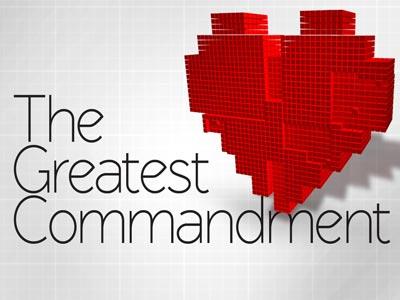-
Double Standard Or Higher Calling?
Contributed by Steve Sheek on May 8, 2023 (message contributor)
Summary: Delivered on 6 May 2023 at Tree of Life Messianic Congregation in Katy Texas. The instructions given to Moses in the Law had much more stringent requirements for the priests than for all others. Seems like discrimination.
20230506 Parashat Emor – Double Standard or Higher Calling
Blessing
Torah Portion Leviticus 21:1-8
Haftarah Ezekiel 44:15-23
Brit Chadashah Matthew 26:59-66
The thirty-first reading from the Torah is called Emor, a title that comes from the first verse of the reading, which says,
????????? ??????? ???-????? ????? ???-??????????? ?????? ??????? ??????????? ??????? ??????? ???-????????? ???????????
Leviticus 21:1 Then Adonai said to Moses, “Speak to the kohanim, the sons of Aaron, and say to them: A kohen is not to allow himself to become unclean for the dead among his people,
Emor begins with special laws of sanctity, propriety and purity for the priesthood. Leviticus 23 provides an overview of the biblical calendar, a listing of the LORD's appointed times.
My Dad was a WWII Marine who served in the Pacific Theater. He was not highly educated, nor particularly emotional, but he loved his family and had a simple, homespun philosophy of life. I can remember complaining on several occasions how something had happened in my life that didn’t seem fair. He would say “Son, that’s life, and life’s not fair”. His outlook on life was influenced by what he considered an inequitable distribution of the family estate.
This week’s Parsha is about discrimination and unfairness in Torah! I said discrimination and unfairness in God’s instructions to His people. Have I got your attention yet?
Do you realize that there are portions of the Torah that you could never obey? There are parts of the Torah that even Yeshua didn’t follow. Before you start throwing rotten vegetables let me explain. Not all of the Torah applies to all of Bnei Israel. There are sections that apply to women only. Some portions are instructions regarding lepers. Then there are portions that involve only the Levites and even further, the kohanim (priests). Chapter 21 details the requirements for the kohanim in keeping themselves ritually clean.
A priest is not to defile himself by coming near or touching a corpse. The exception is that he may come near a dead body, meaning preparing the body for burial, if the deceased was a close relative. This would include a father, mother, brother, a virgin sister, a son or daughter.
A priest was prohibited from attending a funeral for any family member outside the ones mentioned above. The Kohen Gadol, or High Priest had further restrictions. The High Priest could not come near any corpse, not even his parents.
The priests were restricted to whom they could marry. Ok, so some of the prohibitions made sense. A priest was not to marry a lady of the night or a divorcee.
The High Priest could only marry a virgin. Although, this was probably moot since a High Priest was normally an older priest and would have already been married.
Any descendants of Aaron who were not totally whole could not serve in the priesthood. If they were crippled, blind, deaf, impotent, or disfigured they could not offer sacrifices to God in the office of a priest. They could eat of the sacrifices though.
If you were born into the Levitical tribe and were actually a priest, I think it would be easy for a priest to feel like these restrictions were unfair. The guys in the other tribes can marry anyone they want to, even women from outside Israel if she agreed to abandon idolatry and to worship Adonai. It just wasn’t fair.
And why can’t a priest go to the funeral of his first cousin. After all, they grew up together and had all sorts of adventures together. It’s only right that he should be able to attend the burial of good friend and cousin.
This is an example of what is called distinction theology. A higher standard of holiness and special laws maintained by the priesthood are good examples of distinction theology - the theological perspective that knowledges not all of the Torah’s laws apply to everyone equally.
Why were the priests held to a higher standard of holiness or separation than the other members of Bnei Israel? It was because of their calling. They had a special calling on their lives because they were born into the family of Aaron. These were the men who prepared the sacrifices of the people and brought them to the altar of God. They put the sacrifices into the fire on the altar. The meat and fat was consumed, sending a plume of smoke up to the heavens. God called it a pleasing aroma. That was about as close as one could get to God without being the High Priest and entering the Holy of Holies each year at Yom Kippur. Because of that closeness, God required that the priests live by a much higher level of Holiness than their countrymen. They were to maintain that special separation from the profane or common things of life. The priests were God’s representatives on earth.

 Sermon Central
Sermon Central



